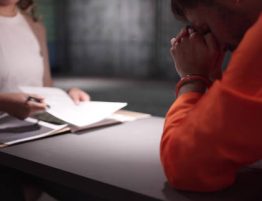
Imagine a scenario: a loved one is in crisis due to mental health. Their behavior is unusual, voice filled with despair, and the concern grows on you – Are they dangerous to themselves or others? In such moments, a tough decision arrives–seek assistance, although you’re aware that this could lead to forced confinement. But who really makes that call? The answer, for that matter, is not easy either. This is a concern of worry, legalities, and an intricate balance between individual liberty and public safety.
Our blog is all about different people who can trigger involuntary commitment or the Baker Act in Florida.
First Are The Families
Thinking about how to Baker Act someone in Florida? A loved one in crisis is often seen by parents, spouses, and even siblings. Fear of their safety or others may give them the motivating force to seek help. Hence, they can file an “ex-perte” motion with a judge or call law enforcement agencies to set off an involuntary evaluation. It is a heartrending call, filled with love and fear as they hope for their loved one’s recovery, even if it means the temporary loss of their freedom due to intervention.
Mental Health Professionals
Mental health professionals are certainly next in the chain. Doctors, therapists, and counselors see mental illness. They assess the patients, check risk factors, and make recommendations based on their professional judgment. Again, they may, on occasion, send a patient for more examination themselves if they believe that the latter presents a danger to themselves or others. Additionally, it’s a responsibility that they do not take lightly, balancing the need for intervention with respect for individual autonomy.
Law Enforcement
The role of law enforcement cannot be underestimated, without a doubt. The officers responding to 911 calls involving people in crisis have the power to detain someone if they decide that a person is dangerous. They can indeed call for an involuntary evaluation to ensure the safety of themselves, individuals, and the community. It is a fine line that officers walk between the complexity of mental health and their duty to protect public safety.
Neighbors
In some cases, community members can also intervene. Anyone – be it neighbors or landlords seeing a tenant in distress may seek a psychiatric examination. While it comes from a good place, this brings up the question of its potential abuse and bias. Therefore, these forced psychiatric examinations should be carefully safeguarded to make sure they do not arise from bias or misunderstanding.
Talmadge Law Firm Stands With You
We believe now you might understand how to Baker Act someone. If you or someone you know is in distress due to a lack of complete knowledge about a possible psychiatric examination, then immediately complete a request for consultation form at https://talmadgelawfirm.com/contact-us/. We will talk to you at your convenience.









